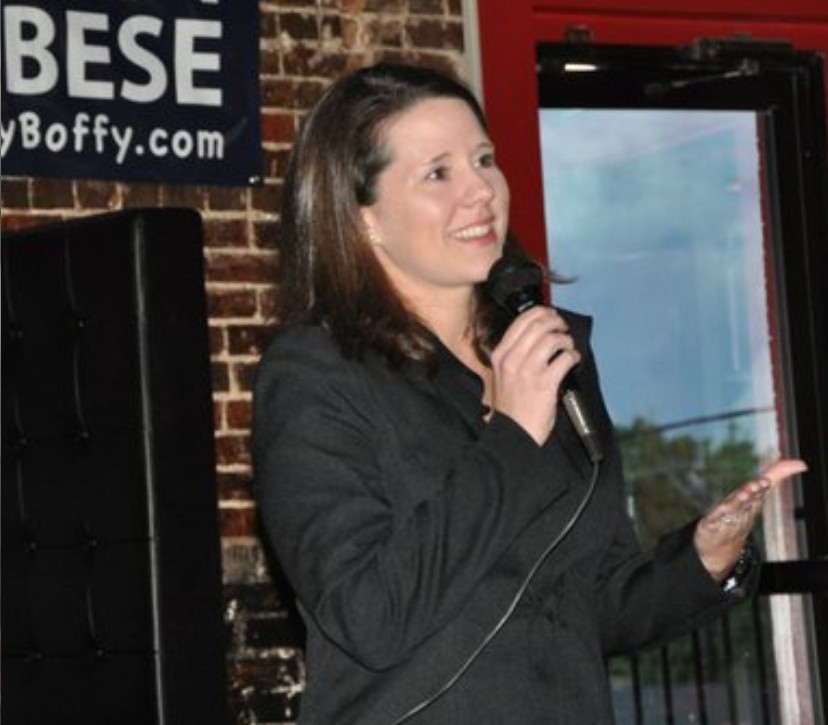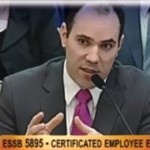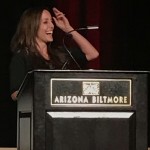In Part One I asked, What will teachers finally say when we are given a voice at the policy-making table? Part Two profiled John Prosser, a teacher leader in Washington state, who facilitates the implementation of policy he helped negotiate. The conclusion features Holly Franks Boffy, a teacher leader who serves on the Louisiana State Board of Education.
Finding an Identity
Holly Franks Boffy’s path to state-wide leadership began by confronting that most elemental question: Who am I going to be?
She found her answer by declaring first, who she was not going to be.
Holly’s son, Pierce, battles with Osteogenesis Imperfecta, commonly known as “Brittle Bone Disease” or simply, OI. The name, according to the website, translates as “bone that is made imperfectly from the beginning of life.” The condition is characterized by fragile bones that break easily. People born with OI are impacted their entire lives.
While caring for Pierce after an accident that left a large part of his body in a cast, Holly decided that while OI presented a life challenge, it would not define her identity. She says that at the time she felt an urge – something inside her – telling her to run. Interpreting the call literally, she began training for and finally competing in a 5k race.
But the urge to run wouldn’t let go. So Holly entered a different kind of race – the 2011 race for a seat on the Louisiana State Board of Elementary and Secondary Education (BESE). She ran against a twelve year incumbent who was a businessman by profession. Her message was simple:
“Who do you want making education policy – a Louisiana State Teacher of the Year (2010) with ten years classroom experience and three degrees in education — or the guy who sells insurance?”
On Saturday, November 10, 2011, the voters answered the question unequivocally by electing Holly with a 2 to 1 margin.
Walking the Talk
When we talked on the phone Holly first reflected on the weight of responsibility she assumes as a teacher on the state board of education, “When I was a teacher I went to sleep with a hundred students on my mind. Now I go to sleep thinking about 700,000.” She says she’ll see a group of kids on a field trip and look them in the eye and think, “You don’t know who I am, but I affect your life.”
So what is it like to have such influence? What about when a hot topic in education brings out emotional demonstrations from the public? Does she ever face sad young children with hand painted signs urging her to do something? “Oh, those kids with signs!” she exclaims. She sees her share and appreciates their sincerity and intent.
She cautions, though, that while passion may get your attention, emotion can also be a turn-off. It’s facts in tune with the big picture that persuade policy. She keeps in mind that the most emotional citizens represent the end members of an issue, but that she also represents the people in the middle, those that don’t often show up at public meetings. And often the decisions the loudest groups want don’t represent the best or fairest use of limited resources.
What Holly says she can never do is base her decisions on making people happy. She remains focused on what policies the evidence suggests will most benefit children and raise the profession.
How does she react when teachers disagree with each other about an issue? When, as she says, “You put thirty teachers in a room and you have thirty different opinions.” Holly considers that her first job in this case is to listen and coach people to understand their own thinking. She tries to find shared perspectives and to keep discourse solutions-oriented.
A specific goal of Holly’s is to elevate our profession. She was surprised to learn her state’s teaching standards define minimal proficiencies. But she wants to find a means to promote exemplars, to find and raise into view “clinics of success”.
As an aside, I wondered if more experienced policy-makers were condescending to her, being “just” a teacher, but she said absolutely not. In fact, her colleagues on BESE recognized the special knowledge and credibility she has as a former classroom teacher and elected her Secretary-Treasurer of BESE.
Conclusion
Holly wishes more teachers would put themselves on the line and speak up and act and pursue positions of influence. But in the end, the final piece of teacher leadership is not voice or message. Surprisingly, both Holly Franks Boffy and John Prosser emphasized that listening was what mattered. They both spoke about the humbling responsibility that comes with making and implementing policies that impact large numbers of teachers and students. They’re in agreement that facts and fairness should carry the day.
But listening comes first.









